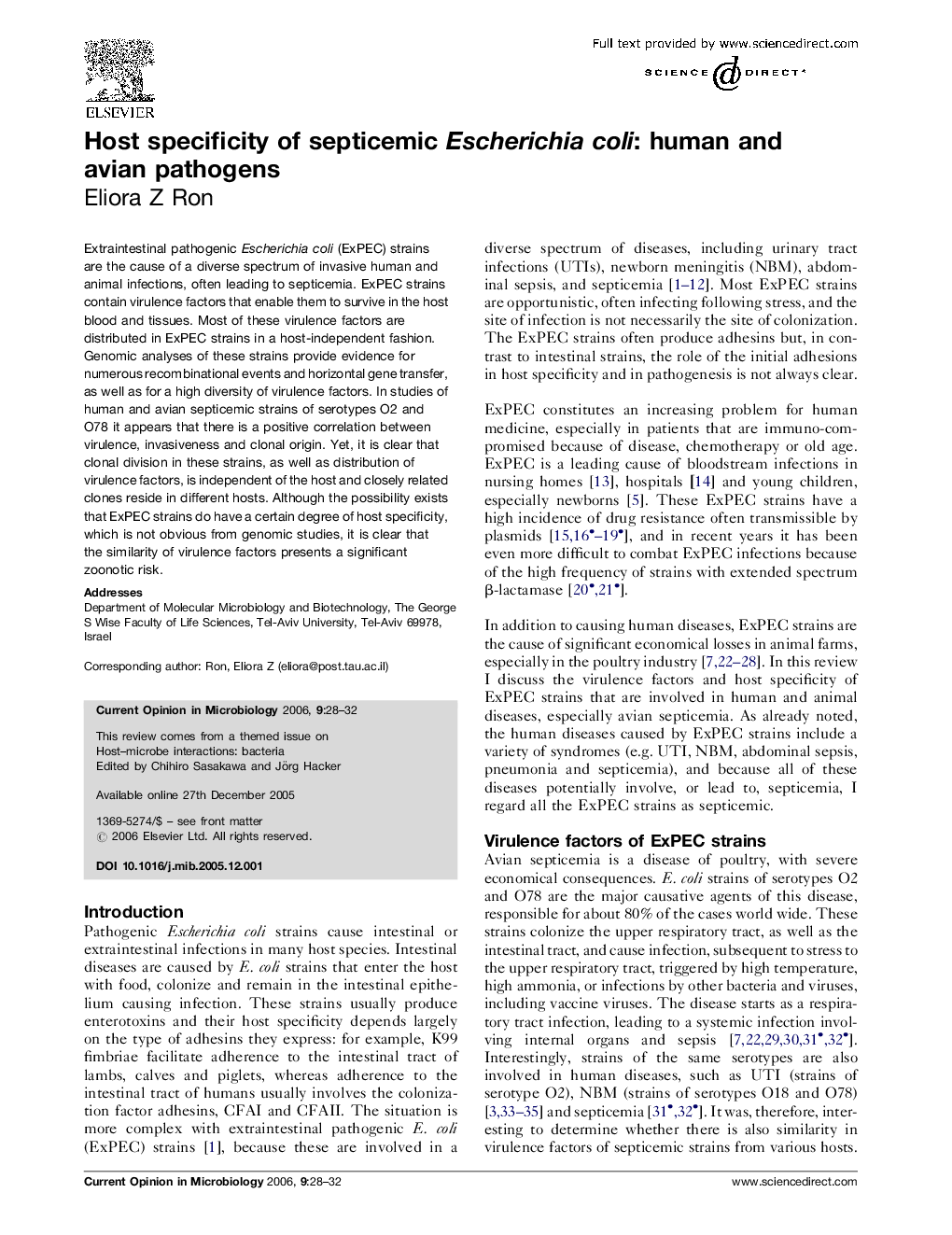| Article ID | Journal | Published Year | Pages | File Type |
|---|---|---|---|---|
| 3399777 | Current Opinion in Microbiology | 2006 | 5 Pages |
Extraintestinal pathogenic Escherichia coli (ExPEC) strains are the cause of a diverse spectrum of invasive human and animal infections, often leading to septicemia. ExPEC strains contain virulence factors that enable them to survive in the host blood and tissues. Most of these virulence factors are distributed in ExPEC strains in a host-independent fashion. Genomic analyses of these strains provide evidence for numerous recombinational events and horizontal gene transfer, as well as for a high diversity of virulence factors. In studies of human and avian septicemic strains of serotypes O2 and O78 it appears that there is a positive correlation between virulence, invasiveness and clonal origin. Yet, it is clear that clonal division in these strains, as well as distribution of virulence factors, is independent of the host and closely related clones reside in different hosts. Although the possibility exists that ExPEC strains do have a certain degree of host specificity, which is not obvious from genomic studies, it is clear that the similarity of virulence factors presents a significant zoonotic risk.
